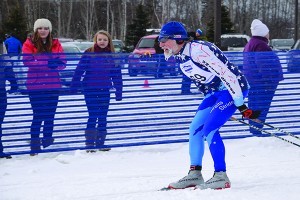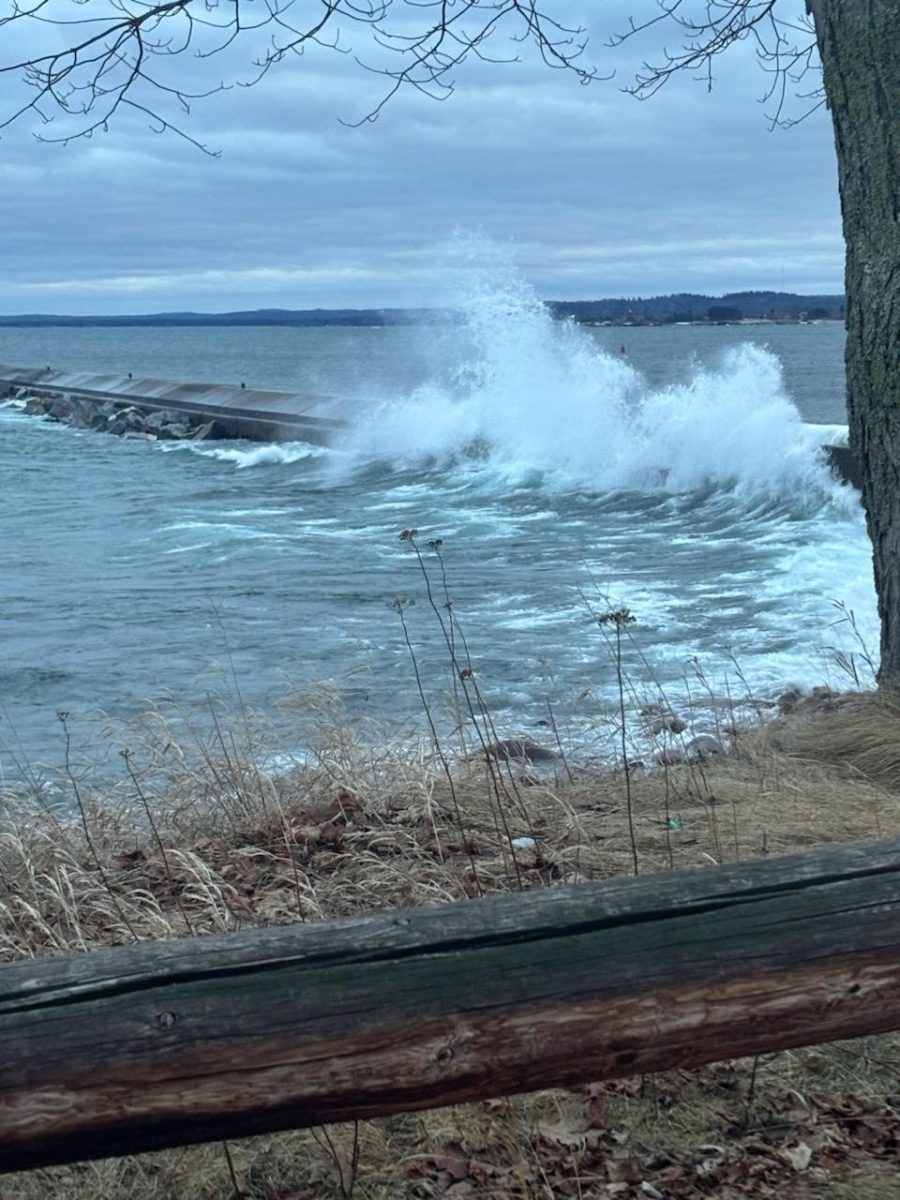While some places are winding down for snowy hibernation, Marquette is exploding with activity as the winter sports season starts to peak.

On Friday, Jan. 24, nearly 1,300 racers from across the United States will descend on Marquette & Ishpeming, the birthplace of American organized skiing, to compete in the Marquette General Health System Noquemanon Ski Marathon, including the mBank half marathon and the Snow Bike World Championship.
Jon Mommaerts has been director of the race for 17 years and is this year’s chief of race, managing both the race’s planning process and the day-of duties.
“We’ve created an event—and a trail system that is funded by this event—to allow for residents to have trail access and access to healthy lifestyles,” Mommaerts said.
Since 1998, the race has used the Noquemanon Trail Network (NTN), an all-season recreational trail system funded solely by user contributions and events such as “The Noque.” From the starting line in the Al Quad Recreation area, skiers of the full marathon trek roughly 50 kilometers (about 31 miles) north over the Dead River Basin and east through the Forestville Plains, finally finishing at the NMU Superior Dome.
Seven aid stations throughout the course supply racers with water and energy drinks. A majority of the race’s more than 500 volunteer’s work these aid stations, cheering racers onward.
As a part of the American Ski Marathon Series, the ski race welcomes all skill levels, offering a 50k, 24k, 12k and youth race called the Junior Noque. Racers will compete in a classic style contest with trails featuring prepared parallel tracks carved into the snow, or a freestyle contest, sometimes referred to as skate-skiing.
The mBank Half Marathon, spanning the final 24k, or 14.9 miles, of the NTN race track, provides much of the scenery and beauty that racers desire without the uphill climb characteristic of the beginning half of the course.
“Even though the Half Noque is half the distance, the full marathon is more than twice as hard,” said Derek Anderson, 8-year chief of half marathon and associate professor of education at NMU.
From the beginning of the Half Noque, where the course intersects with CR-550, racers descend in elevation approximately 900 feet to the race’s finish line at the Superior Dome.
“The first half of the full marathon is super hilly, whereas, the Half Noque is more downhill than up,” Anderson said.
The World Championship Snow Bike Race, occurring on that Saturday, is the fourth out of eight races included in the Great Lakes Fat Tire Bike Series. While this is a 50k race, Saturday, Jan. 25 and Sunday, Jan. 26 will also offer 24k and 12k races for less seasoned riders.
This year’s 24k (15 miles) and 10k snowshoe races have been named as qualifying races for the United States Snowshoe Association (USSSA) National Championships. The Noquemanon website entices competitors to “enter a race where waxing is not a worry, and it is not the quality of your skis that matters, rather the strength of your legs.”
The 24k on Saturday and the 10k on Sunday will provide spectators with a change of pace from the constant waves of skiers.
The connections between events such as the MGHS Noquemanon Ski Marathon and the Marquette community run deep.
Besides donating time and effort to man the race’s numerous volunteer positions, the student and faculty population at NMU also works with event organizers behind the scenes to put on this cold-weather conference.
“We’re already partnering with NMU in a few different areas,” Mommaerts said.
In addition to the welding department at NMU assisting with building finish-line structures, NMU professor of management Carol Steinhaus’s Event Management, MGT 342, class has partnered with race coordinators to plan, manage and execute the Junior Noquemanon.
“The Noquemanon race folks come and tell us about their budget, the scope of the race and we begin to plan our participation and management of the race,” Steinhaus said. “We attend Noquemanon board meetings, we work with community race organizers and then we actually are physically running the event on thatThursday afternoon.”
The Noque brings nearly 1,000 out-of-towners into Marquette the weekend of the race, Mommaerts said.
“So it has a significant economic impact,” he said. “It was estimated through our studies to be around $1.2 million a year.”
Besides being an athletic odyssey, the Noquemanon Ski Marathon serves as a rallying point for snow-sport supporters of all kinds.
“We’re always looking for more volunteers,” Mommaerts said.
If students are interested, call the Local Lakeview Arena Office at (906) 235-6861 or emailinfo@noquemanon.com.






























